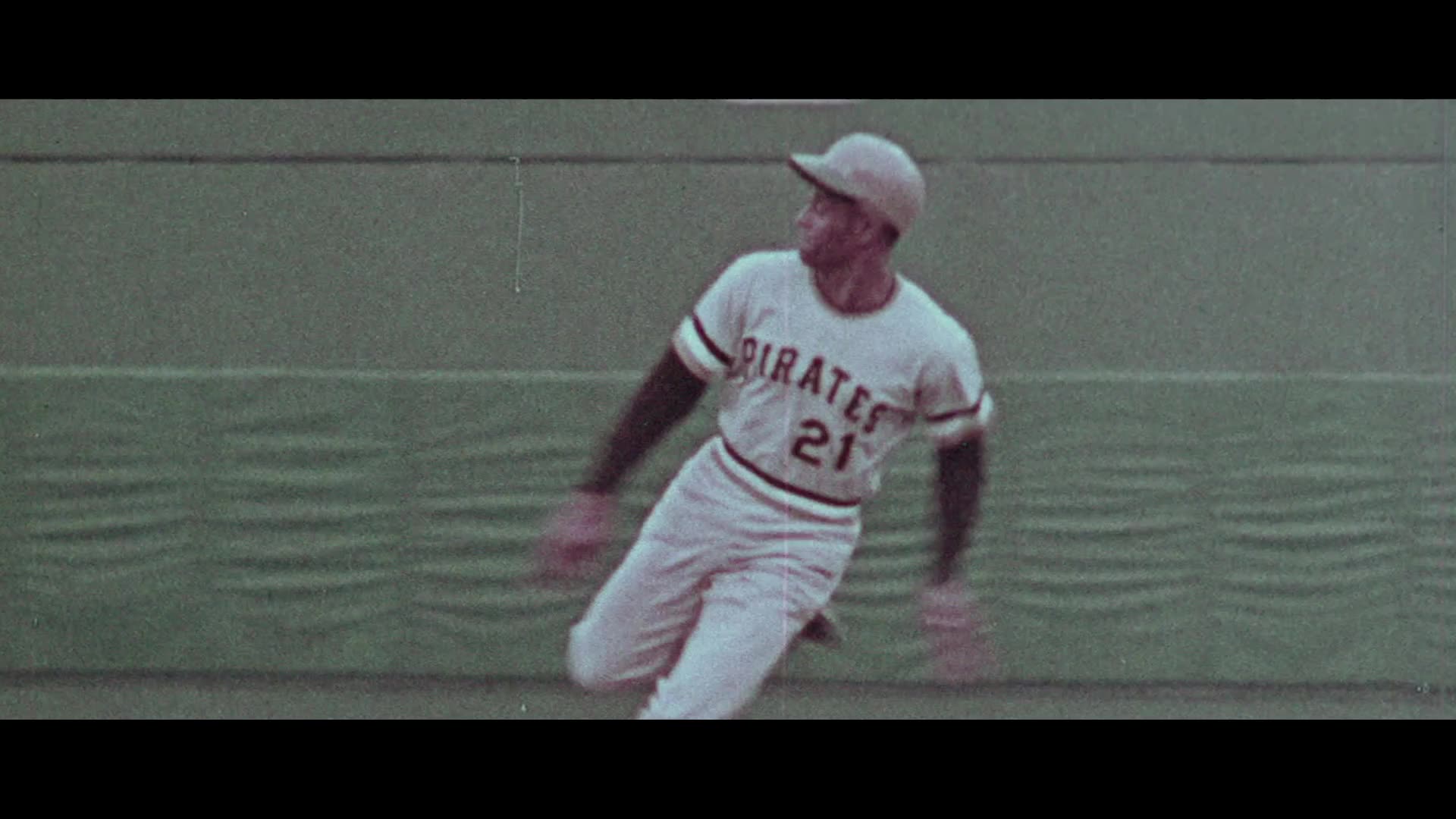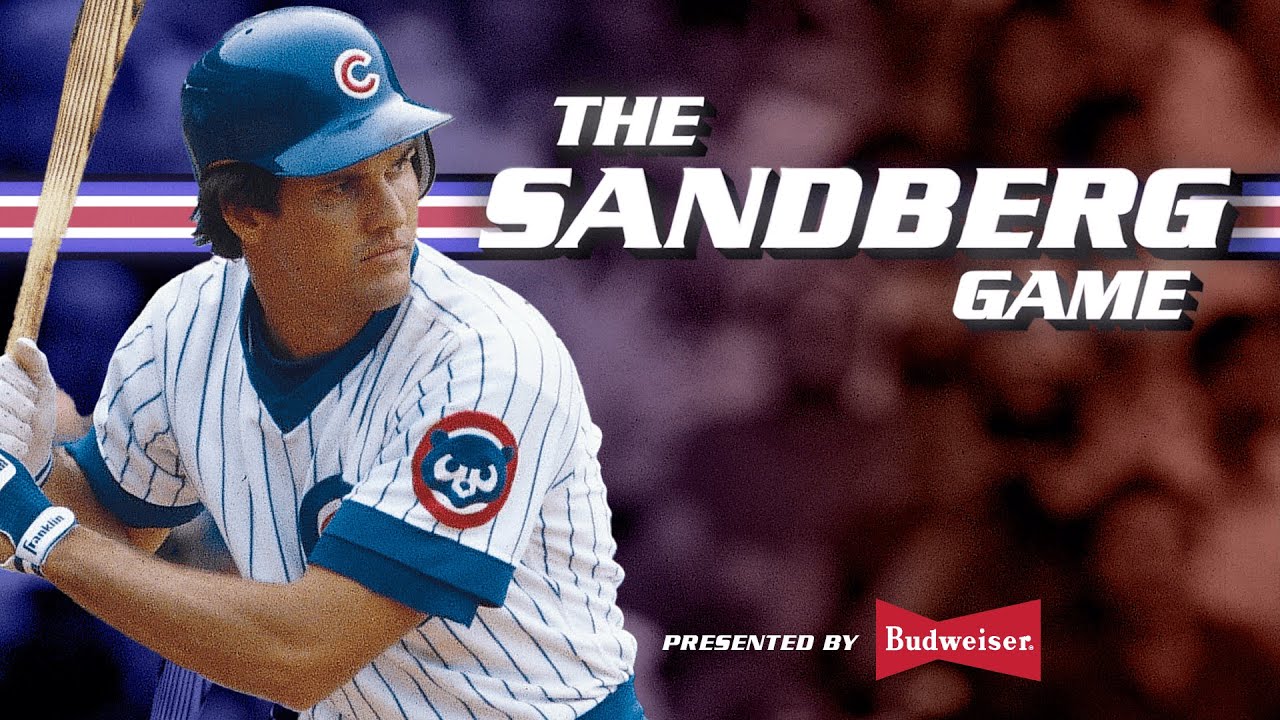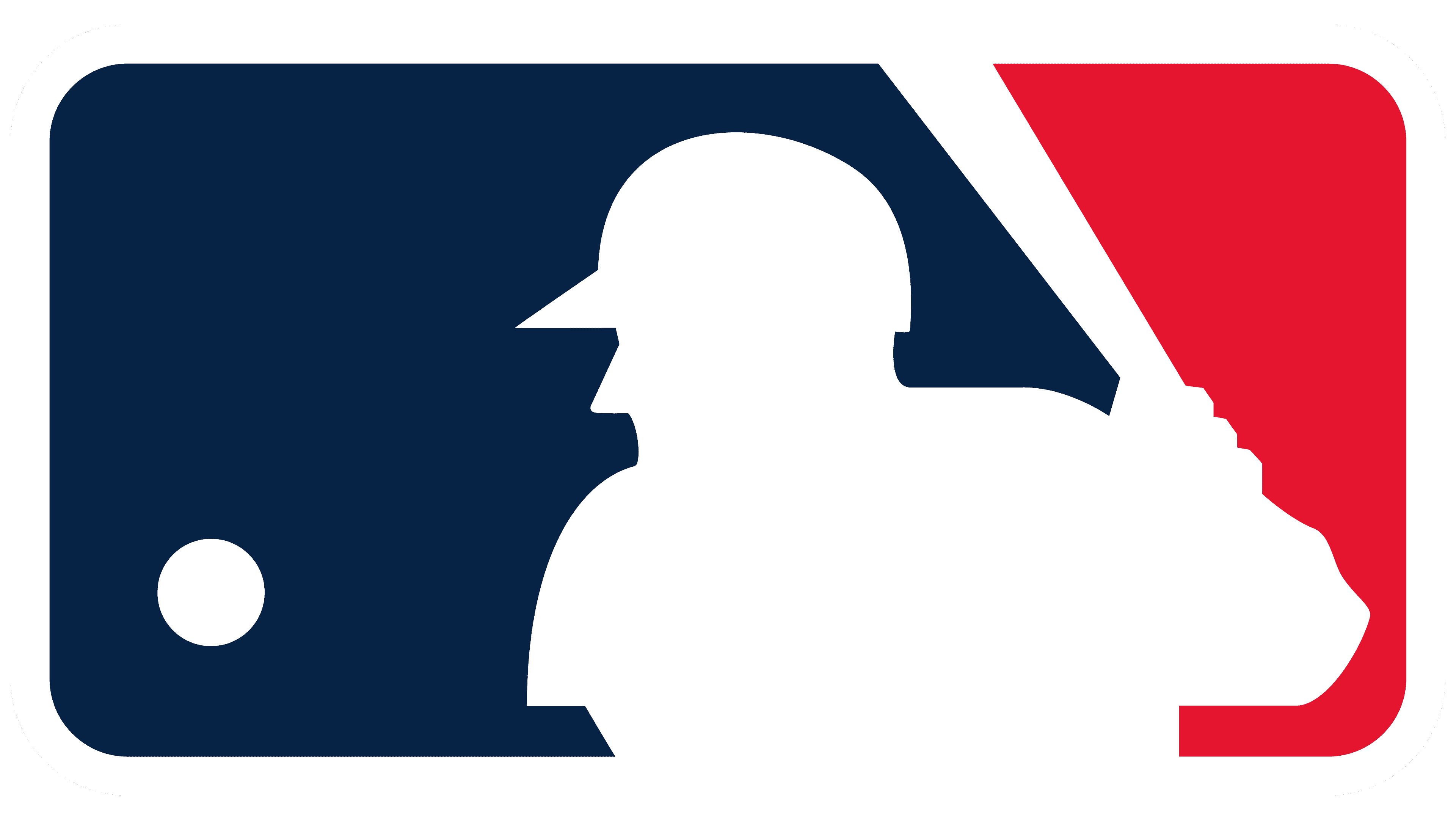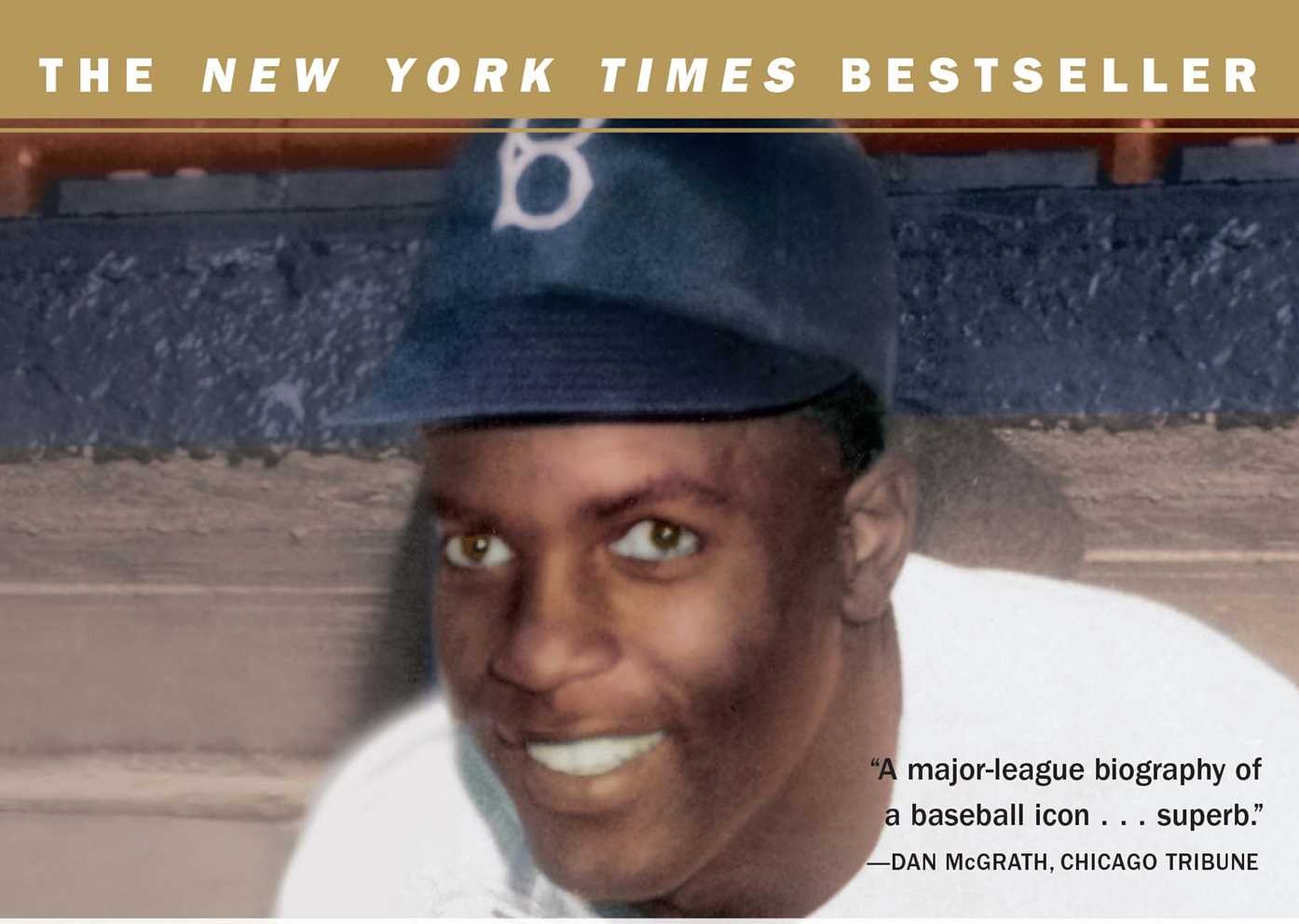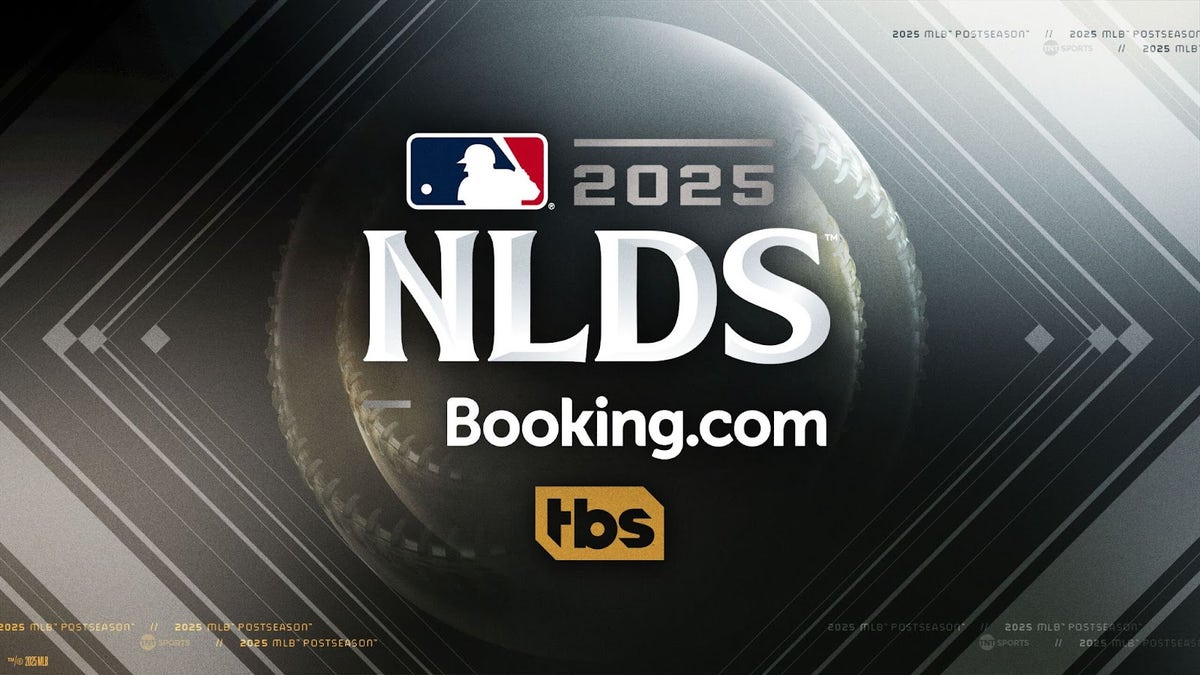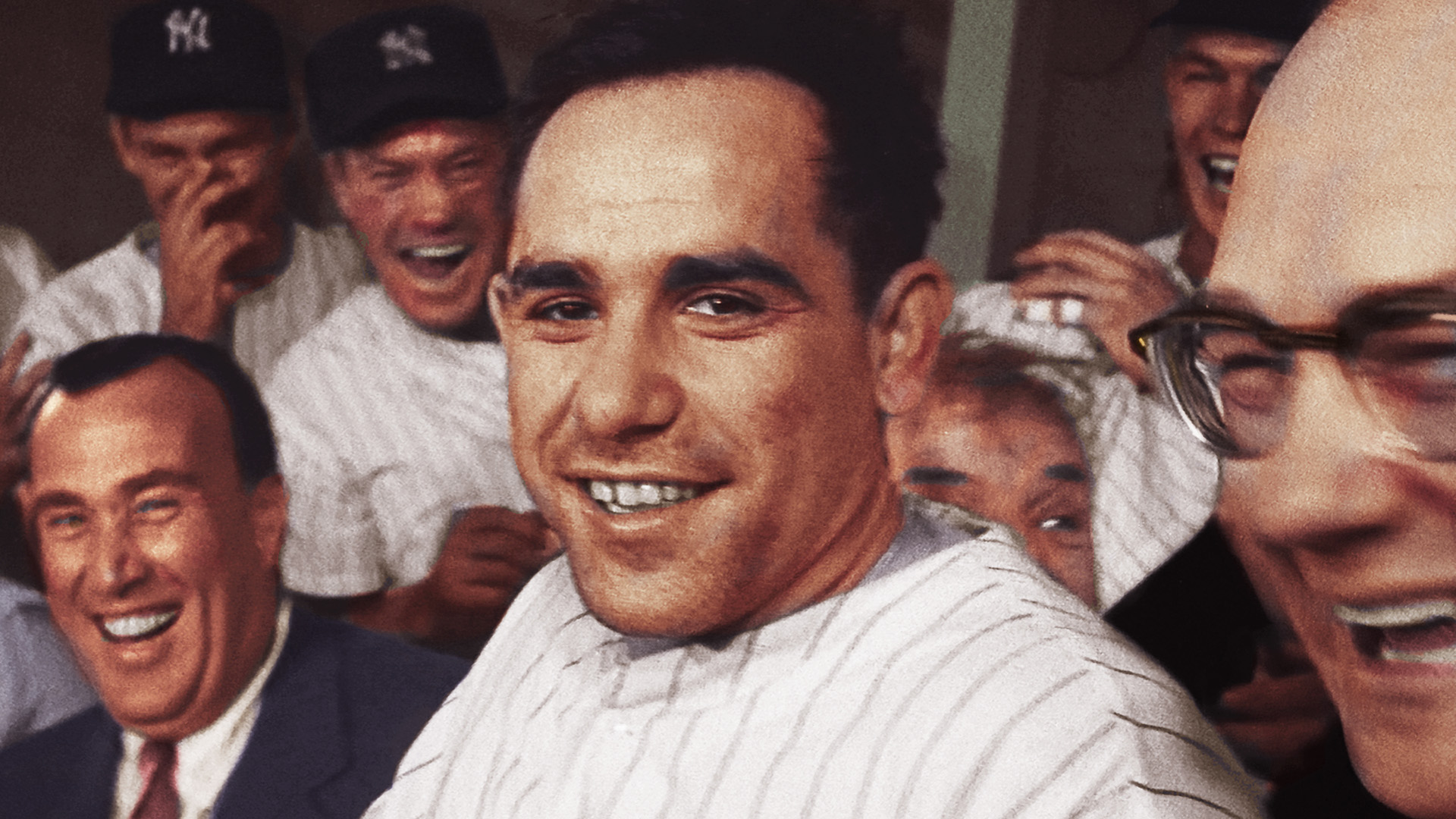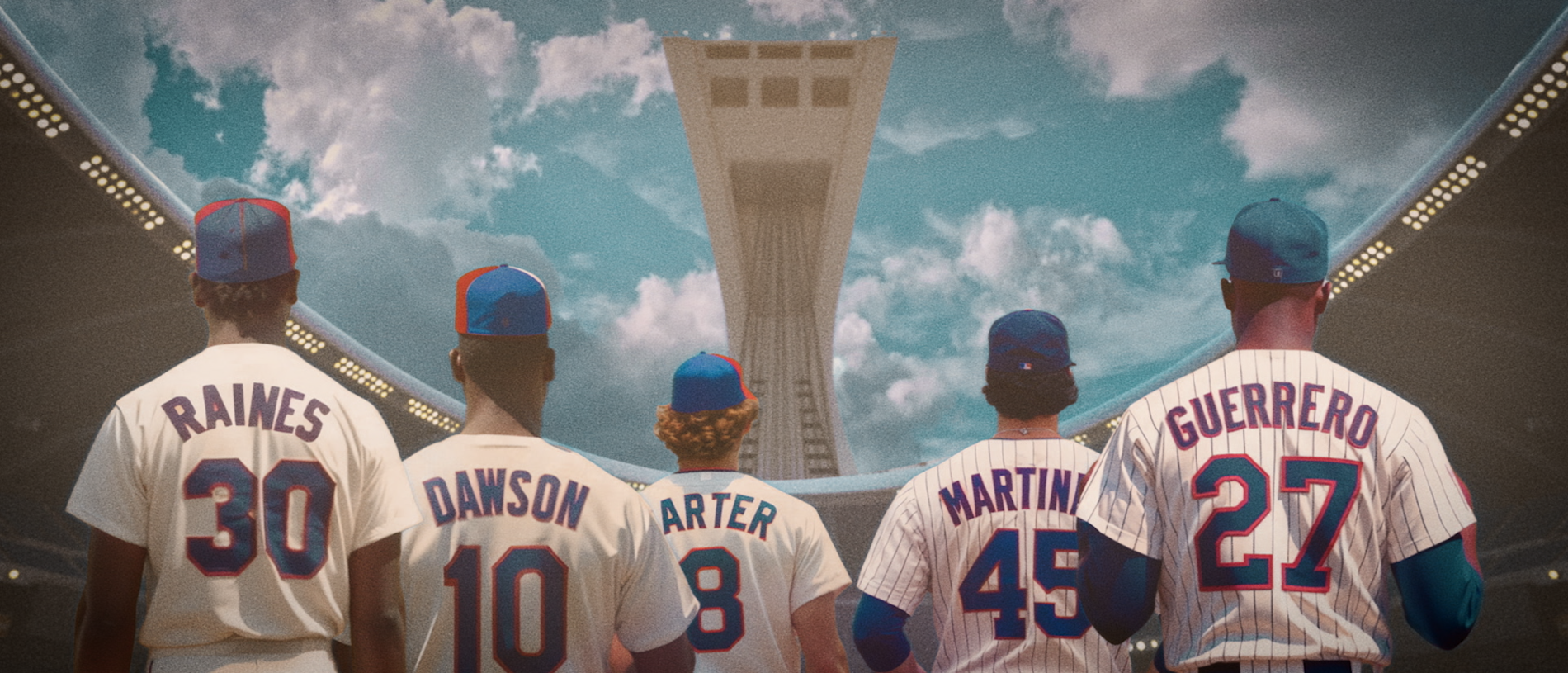
In Who Killed the Montreal Expos?, Jean-François Poisson investigates baseball’s greatest mystery: who—or what—brought down Montreal’s beloved team? The shocking disintegration still reverberates to this day.
“Why is that team gone?” wonders Hall of Fame outfielder Larry Walker in Who Killed the Montreal Expos? “I heard things, but I don’t know what’s real and what’s not.”
More than twenty years after the Montreal Expos played their final home game at Olympic Stadium on September 29, 2004, the heartbreak still lingers. For 35 years, the Expos weren’t just a baseball team—they were part of Montreal’s soul, the first Major League franchise in Canada and a symbol of pride for generations of fans. Gary Carter, Andre Dawson, and Tim Raines all went into the National Baseball Hall of Fame with a Montreal Expos cap on their plaque.
Through candid interviews with Hall of Famers Pedro Martínez, Vladimir Guerrero, and Larry Walker, along with manager Felipe Alou, journalists (including Tom Verducci), and lifelong supporters, Who Killed the Montreal Expos? revisits the behind-the-scenes turmoil, financial missteps, and political forces that led to the franchise’s demise. With rare archival footage and heartfelt reflections, Jean-François Poisson crafts a moving blend of sports history and cultural elegy, exploring how the loss of the Expos became one of baseball’s most enduring heartbreaks.
Was it the fault of former owner Claude Brochu, subsequent owner Jeffrey Loria, or the devastating 1994 MLB strike that shattered Montreal’s best shot at a World Series? Poisson doesn’t give us a Benoit Blanc to solve the mystery, but over 91 minutes, he lays out the evidence in Who Killed the Montreal Expos? and lets viewers decide who’s ultimately responsible.
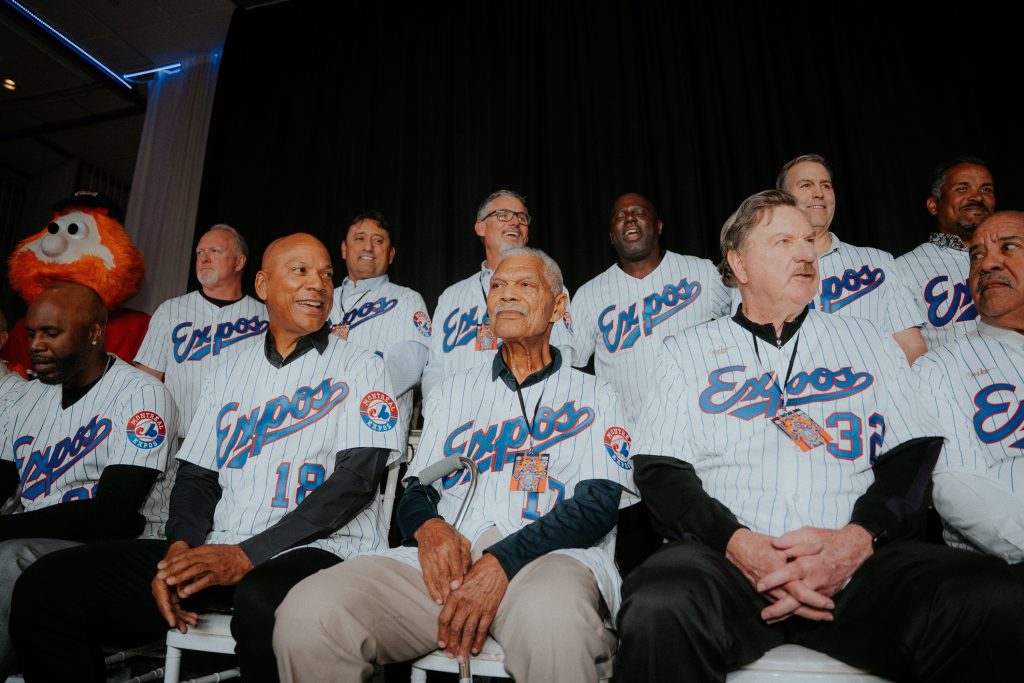
It’s hard to believe it’s been more than two decades since the Expos packed up and became the Washington Nationals. Vladimir Guerrero was long gone before the move, but the Nationals would go on to draft future stars like Ryan Zimmerman, Bryce Harper, and Stephen Strasburg. Still, as Poisson’s film reminds us, the move to Washington didn’t end the story—it only deepened the wound. While the Expos were never able to win the World Series, the Nationals took home the trophy in 2019.
As Jeff Blair notes, the main sources of revenue for Major League clubs are ticket sales, television, and stadium sponsorships. Cord-cutting wasn’t a factor yet, but escalating player salaries and TV contracts had already begun warping the economics of baseball. The Expos faced an additional hurdle: their salaries were in U.S. dollars while revenues came in Canadian. Montreal adored its team, but investors weren’t willing to lose money for sentiment’s sake.
When Jeffrey Loria arrived as owner, few in Montreal knew much about him—and what followed did little to inspire confidence. His tenure marked one of the darkest stretches in team history. Loria later purchased the Florida Marlins (now the Miami Marlins), won the 2003 World Series, and promptly gutted the roster. His stepson, David Samson, who also appears in the film, insists that “the Montreal atmosphere was toxic long before they got there.”
Contrast that with original owner Charles Bronfman, who genuinely cared about the team. “The business of baseball had superseded his love of the game,” Tom Verducci observes. Even as one of Canada’s wealthiest men, Bronfman couldn’t make the numbers work. When he sold the team to a group led by Claude Brochu, it felt like a chance at renewal—but the business realities never softened.
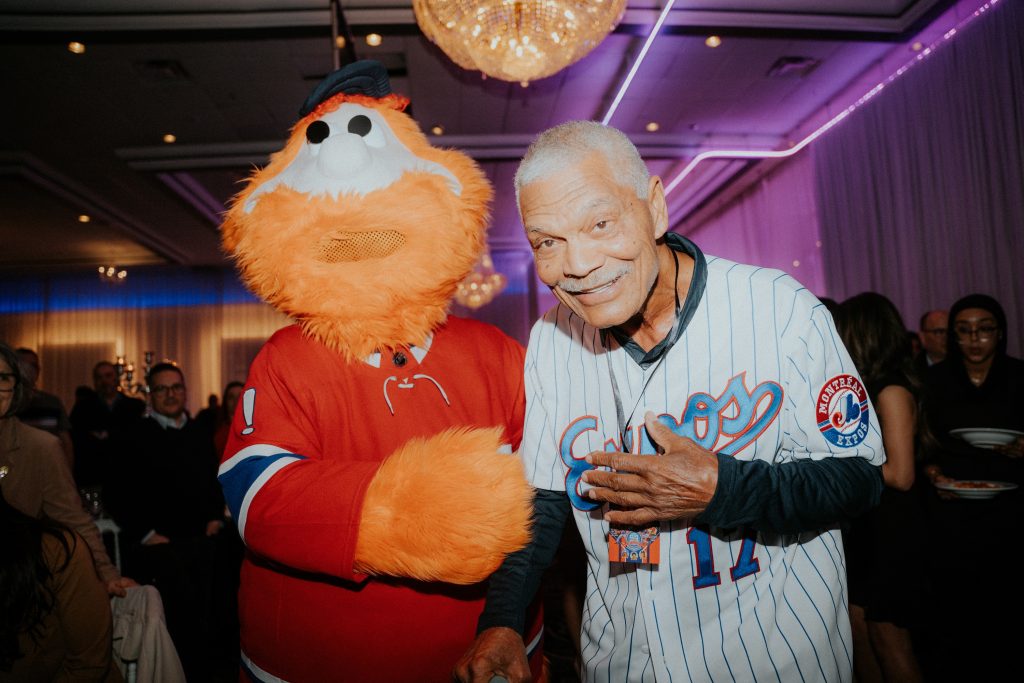
Brochu hired Felipe Alou as manager in 1992, and the Expos’ clubhouse became, in Alou’s words, “a family-type situation.” That family reached its peak in 1994, when the Expos held the best record in all of baseball. With a lineup featuring stars like Marquis Grissom, Moisés Alou, Larry Walker, and Wil Cordero, and a dominant pitching staff led by Ken Hill, Jeff Fassero, Butch Henry, and a young Pedro Martínez early in his Hall of Fame career, Montreal was poised for a championship—until the strike stopped everything cold.
Following the strike, Brochu held a fire sale, dealing away Ken Hill, John Wetteland, and Marquis Grissom. Walker left as a free agent, and Moisés Alou, Pedro Martínez, and Mel Rojas soon followed. Attendance cratered. “Do I believe in my heart that the strike of ’94 killed the Expos?” Samson asks. “That’s a narrative that’s very common. I don’t. There were many moments. Not one.”
Would replacing Olympic Stadium have changed the outcome? Perhaps. In the U.S., local governments often stepped in to finance new stadiums. Canada’s federal and provincial governments didn’t. Without that support, Montreal’s ownership ran out of options. When Loria arrived, he declared that “it would no longer be business as usual,” and payroll nearly doubled—but as Who Killed the Montreal Expos? reminds us, Montreal still had the smallest TV deal in Major League Baseball.
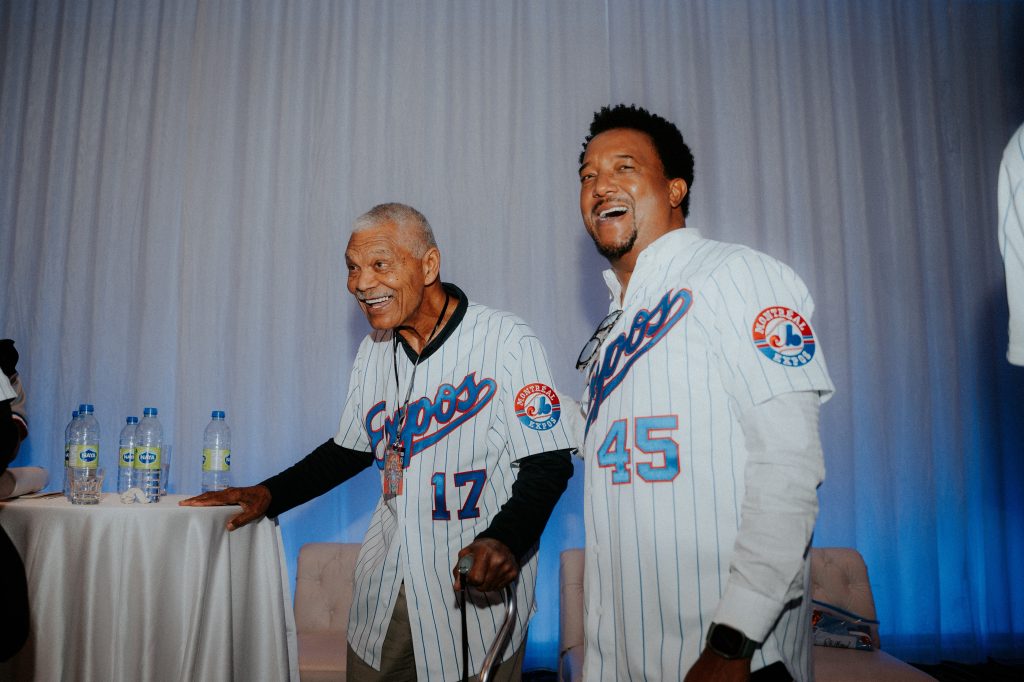
Felipe Alou’s firing in 2001 symbolized the end of an era. The most successful manager in Expos history was replaced by Jeff Torborg, who soon followed Loria to Florida. Frank Robinson then guided the Expos—and later the Nationals—through their final seasons. By 2002, minority shareholders were suing Loria for fraud.
Poisson leaves few stones unturned in Who Killed the Montreal Expos?, tracing the series of missteps—from ownership struggles to the 1994 strike—that eventually led to MLB taking control of the franchise. The documentary makes it clear that there wasn’t a single culprit—only a cascade of events that no one could fully stop.
With local ownership never materializing and no new ballpark deal in sight, MLB’s intervention effectively sealed the team’s fate. Were they the ones who killed the Montreal Expos? Washington, D.C.—the largest American market without a team—was waiting. When the 2005 season began, the Expos were gone, and the Nationals were born, leaving Montreal to grapple with the loss.
Who Killed the Montreal Expos? works both as a sports mystery and a cultural autopsy. Poisson approaches the story not as a simple blame game, but as a reflection on loss—of a team, a community, and an era when baseball felt less like business and more like belonging. For fans who lived through it, the pain is still palpable. For everyone else, this documentary is a poignant reminder that even in a game defined by statistics, some losses can’t be quantified.
DIRECTOR/SCREENWRITER: Jean-François Poisson
FEATURING: Felipe Alou, Pedro Martínez, Vladimir Guerrero, Larry Walker, Jeremy Filosa, Rodger Brulotte, Chantal Machabée, Dennis Martinez, Jean-Simon Bibeau, Tom Verducci, Jeff Blair, Alexandre Pratt, Marc Griffin, Serge Touchette, David Samson, Pierre Arsenault, Claude Raymond, Claude Brochu, Mark Routtenberg, Orlando Cabrera
Netflix will release Who Killed the Montreal Expos? on October 21, 2025. Grade: 4/5
Discover more from Dugout Dirt
Subscribe to get the latest posts sent to your email.

